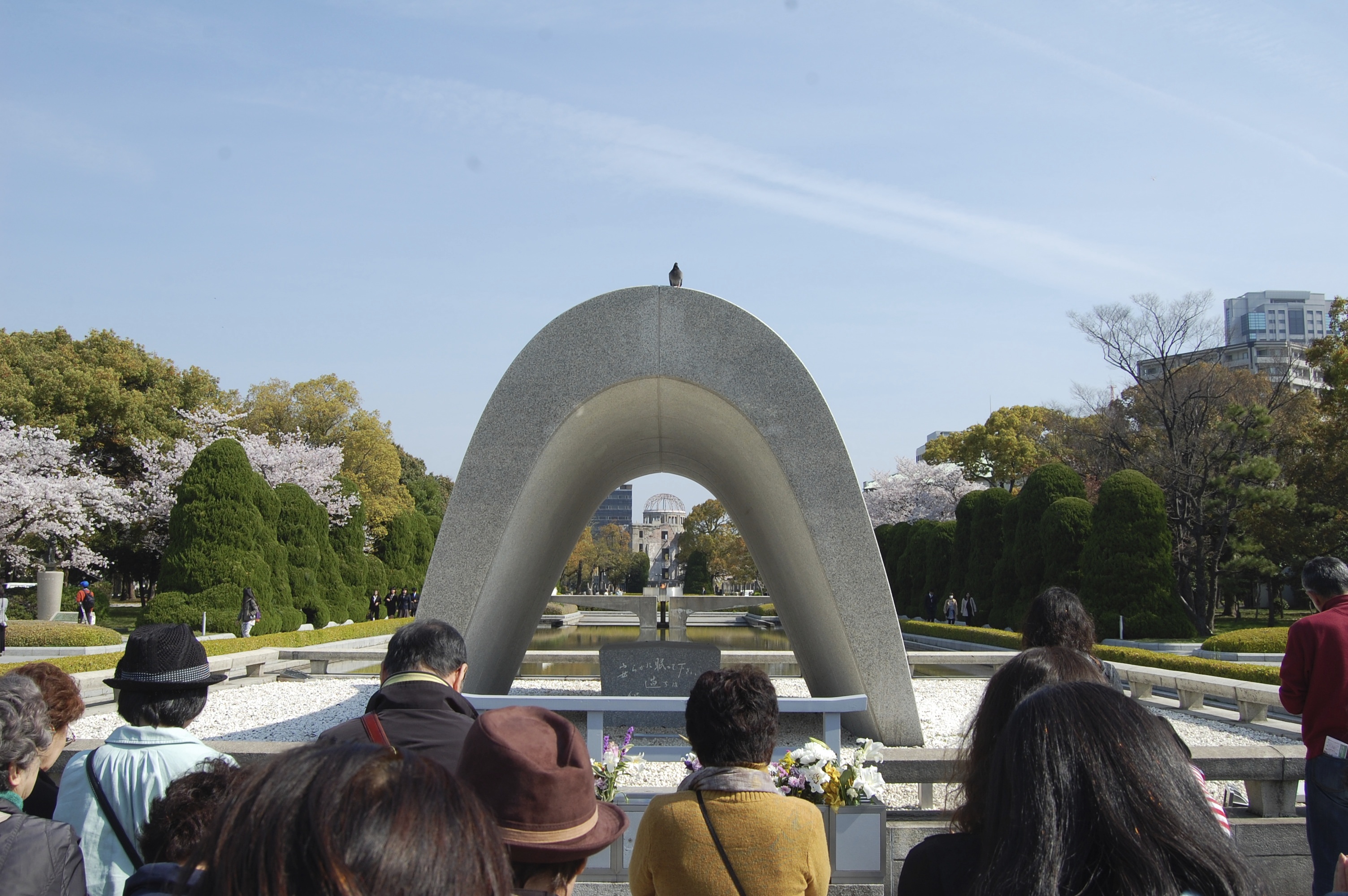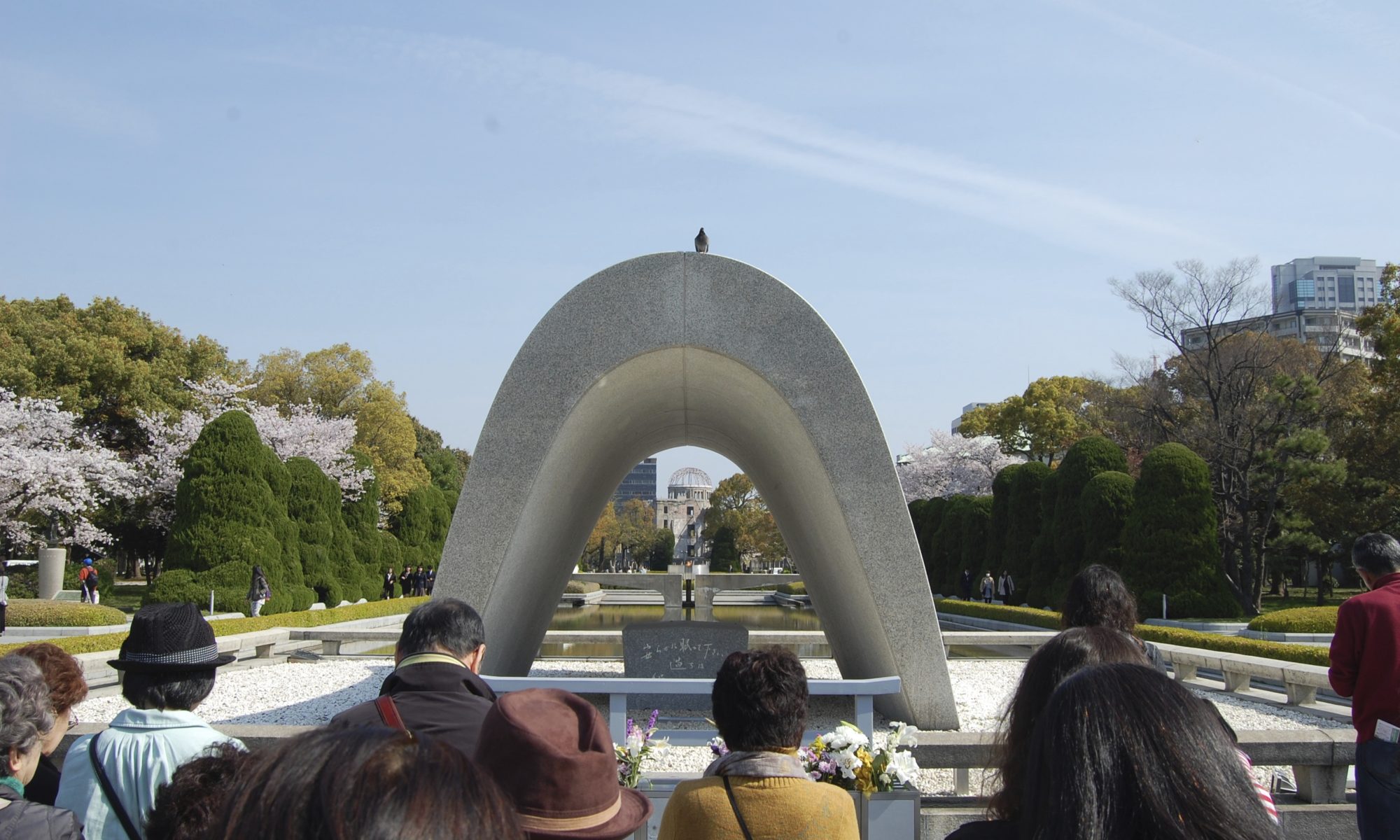This is the class homepage for my postgraduate class The History Issue and Historical Consciousness. The course is in English and is taught as part of the Master’s Program in Japan Studies and the History in the Public Sphere (HIPS) Double Degree Master’s Program.
Syllabus: 530622-日本社会研究1
It is expected that the reading/materials will be read or watched in advance of class. We discuss the texts during class and students are expected to have prepared questions/arguments to bring to the discussion. Many of the resources are available from my Research and Teaching Resource “War Memory Tourism” (WMT).
12 April (Week 1): Official History
Course introduction.
Reading Prime Minister Abe’s Statement (2015): in English, in Japanese.
19 April (Week 2): The News Media (1), Newspapers
Look at the links in the page Newspapers at WMT.
Discussion questions: After looking through the online versions of the Japanese newspapers, can you see any evidence of the war stances given? In what ways do newspapers affect war memories? Find a newspaper article relating to the Second World War in one of the newspapers and prepare a short (1-2 minute) explanation of why it caught your interest.
26 April (Week 3): The News Media (2), Television
Preparatory reading: Read the article by Philip Seaton: War on television in 2015 chapter pw
Look at the Broadcast Law (esp. Article 4, in English here). Also, have a look at some of the war-related stories on NHK World. Use the Backstories page and see what you can find at #China, #South Korea, and #Hiroshima & Nagasaki.
Additional resources are available at Television on WMT.
Discussion questions: What different kinds of programmes are there representing and depicting war? In what ways do these programmes affect war memories? What is the connection between the financial models of television stations and the war-related content they broadcast?
10 May (Week 4): The News Media (3), Magazines and the Internet
Preparatory Reading/Viewing: Look through the website of the Society for the Dissemination of Historical Fact. What do you notice about?
Read this article by Aleksandra Jaworowicz-Zimny on war-related YouTube videos.
Discussion questions: There is a famous quotation: “The medium is the message” (Marshall McLuhan). If the Internet is the medium, what is the message? What other conclusions can we draw about the representations of war in magazines, web news, social media etc.?
17May (Week 5): Commemorative Events (1), The War End, 8/15
Preparatory Reading/Viewing: Compare and contrast Prime minister Abe’s speeches at the ceremony to commemorate the war dead in 2020 (日本語), 2013 and 2007. Here is the emperor’s address in 2020. What do you notice?
Discussion questions: Why does 8/15 matter? Prepare a few ideas based on this section of NHK Archives “Remembering the moment of defeat”, and the Japanese government’s official position on the Northern Territories Issue.
24 May (Week 6): Commemorative Events (2), Hiroshima, 8/6
Preparatory Reading/Viewing: Here is the peace declaration (in English) made by the Mayor of Hiroshima made during the ceremony on 6 August (see YouTube video below).
See also the various materials in Hiroshima (I) on WMT, particularly about the Peace Memorial Museum and Obama’s visit.
Discussion: What is the significance of the A-bombs in Japan regarding both war memories and war responsibility issues? To what extent are the Hiroshima and Nagasaki bombs local history as well as global history? What are the politics of Hiroshima/Nagasaki?
31 May (Week 7): Museums (1), Yasukuni Shrine’s Yushukan
Preparatory Reading/Viewing: See the exhibits in Yasukuni Shrine’s museum, Yushukan. Here is Yasukuni Shrine’s website. There are many other material in the page Remembering the Dead at WMT.
Discussion: Why does Yasukuni Shrine stir such controversy? How do the following factors affect the commemoration of the dead: a) victory, b) defeat, c) aggressive war, d) war of self-defense?
7 June (Week 8): Museums (2), Okinawa Prefectural Peace Memorial Museum
Preparatory Reading/Viewing: Look through the materials at Okinawa on WMT, particular at the website of the Okinawa Prefectural Peace Memorial Museum exhibits and testimonies of those who survived the battle.
Discussion: How do Okinawan perspectives on the war differ from mainland Japanese? What does Okinawan history tell us about “empire” as a keyword within the Japanese experience of the Second World War?
14 June (Week 9): Museums (3), Peace Osaka
Preparatory Reading/Viewing: Look at the exhibits at Peace Osaka. Also read this article: “The Nationalist Assault on Japan’s Local Peace Museums: The Conversion of Peace Osaka”.
Discussion: How does money affect war memories as seen in Japanese war/peace museums? Learning from Peace Osaka, what are the challenges of progressive official history?
Active Learning Hours Deadline, 14 June: Submit your fieldwork report.
21 June (Week 10): Films (1), Documentaries
Preparatory Reading/Viewing: Look through the Testimony Archives on the NHK Website. What can we learn about documentary representations of war?
One of the most hard-hitting documentary programs is Hell in the Pacific (produced by Channel 4 in the UK). This is part one. Note: this is serious history done well, but the graphic imagery of war violence means this is not for the faint-hearted. Viewing is not required.
Discussion: Documentaries in cinema and on TV
28 June (Week 11): Films (2), Action & Entertainment
Preparatory Reading/Viewing: If you can, watch the full version of Tora! Tora! Tora! Then, let’s discuss issues of accuracy in historical movies.
Discussion: The genres of war film in Japan.
5 July (Week 12): Manga & Anime
Three articles as preparatory reading:
““Something Dreadful Happened in the Past”: War Stories for Children in Japanese Popular Culture”, Akiko Hashimoto
“Barefoot Gen, The Atomic Bomb and I: The Hiroshima Legacy”, Nakazawa Keiji
“Historiography and Japanese War Nationalism: Testimony in Sensōron, Sensōron as Testimony”, Philip Seaton
Discussion: Manga representations of war
12 July (Week 13): Summary
Wrap up: History education and the textbook issue. See History Education on WMT.

